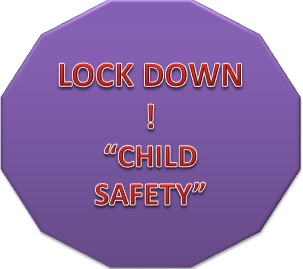Lockdown as poised a challenge for parents/caregivers in looking after the children. Due to lockdown, children are spending most of their time at home. Above all, the children are adventurous and certainly not have an understanding of the consequences of their activities. So children are more susceptible to injuries. However, most of the injuries can be anticipated and avoidable. So it is essential to have a safe home environment to reduce the probability, possibility, occurrence, and brutality of injuries.
Causes of injury –
The most common causes of injury are falls, jammed fingers, poisoning, burns, and near-drowning. In children aged one to two years, injuries at home are most common. After two years of age the injury rate decreases.
The common situations interconnected to injuries include:
- Poor visual contact between the play areas and work areas
- Poor lighting, floor surface or tripping hazards
- Lack of supervision when parents or caregivers are busy or distracted.
Prevention of injuries –
The most essential safety precaution is supervision. Especially, when children are on balconies should be supervised all the time.
In the living area, provide safe play space.
Make sure dangerous items (medicines, matches, or lighters) are inaccessible.
Mount barriers to stop entry to dangerous areas.
Use safety products like electrical outlet plugs, window stops, and furniture straps.
While cooking, children are kept away from the kitchen.
In the bathroom, always remain within arm’s reach of your baby
Never reverse your car, until you know all children are safe


